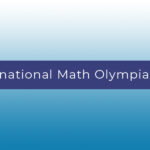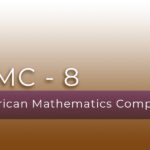India National Olympiad 2006 Problems
Problem 1
In a non equilateral triangle $ABC$ the sides $a,b,c$ form an arithmetic progression. Let $I$ be the incentre and $O$ the circumcentre of the triangle $ABC$. Prove that
(1) $IO$ is perpendicular to $BI$;
(2) If $BI$ meets $AC$ in $K$, and $D$, $E$ are the midpoints of $BC$, $BA$ respectively then $I$ is the circumcentre of triangle $DKE$.
Problem 2
Prove that for every positive integer $n$ there exists a unique ordered pair $(a,b)$ of positive integers such that
\[ n = \frac{1}{2}(a + b – 1)(a + b – 2) + a . \]
Problem 3
Let $X=\mathbb{Z}^3$ denote the set of all triples $(a,b,c)$ of integers. Define $f: X \to X$ by\[ f(a,b,c) = (a+b+c, ab+bc+ca, abc) . \]
Find all triples $(a,b,c)$ such that\[ f(f(a,b,c)) = (a,b,c) . \]
Problem 4
Some 46 squares are randomly chosen from a $9 \times 9$ chess board and colored in red. Show that there exists a $2\times 2$ block of 4 squares of which at least three are colored in red.
Problem 5
In a cyclic quadrilateral $ABCD$, $AB=a$, $BC=b$, $CD=c$, $\angle ABC = 120^\circ$ and $\angle ABD = 30^\circ$. Prove that
(1) $c \ge a + b$;
(2) $|\sqrt{c + a} – \sqrt{c + b} | = \sqrt{c – a – b}$.
Problem 6
(a) Prove that if $n$ is a integer such that $n \geq 4011^2$ then there exists an integer $l$ such that\[ n < l^2 < (1 + \frac{1}{{2005}})n . \]
(b) Find the smallest positive integer $M$ for which whenever an integer $n$ is such that $n \geq M$
then there exists an integer $l$ such that\[ n < l^2 < (1 + \frac{1}{{2005}})n . \]




